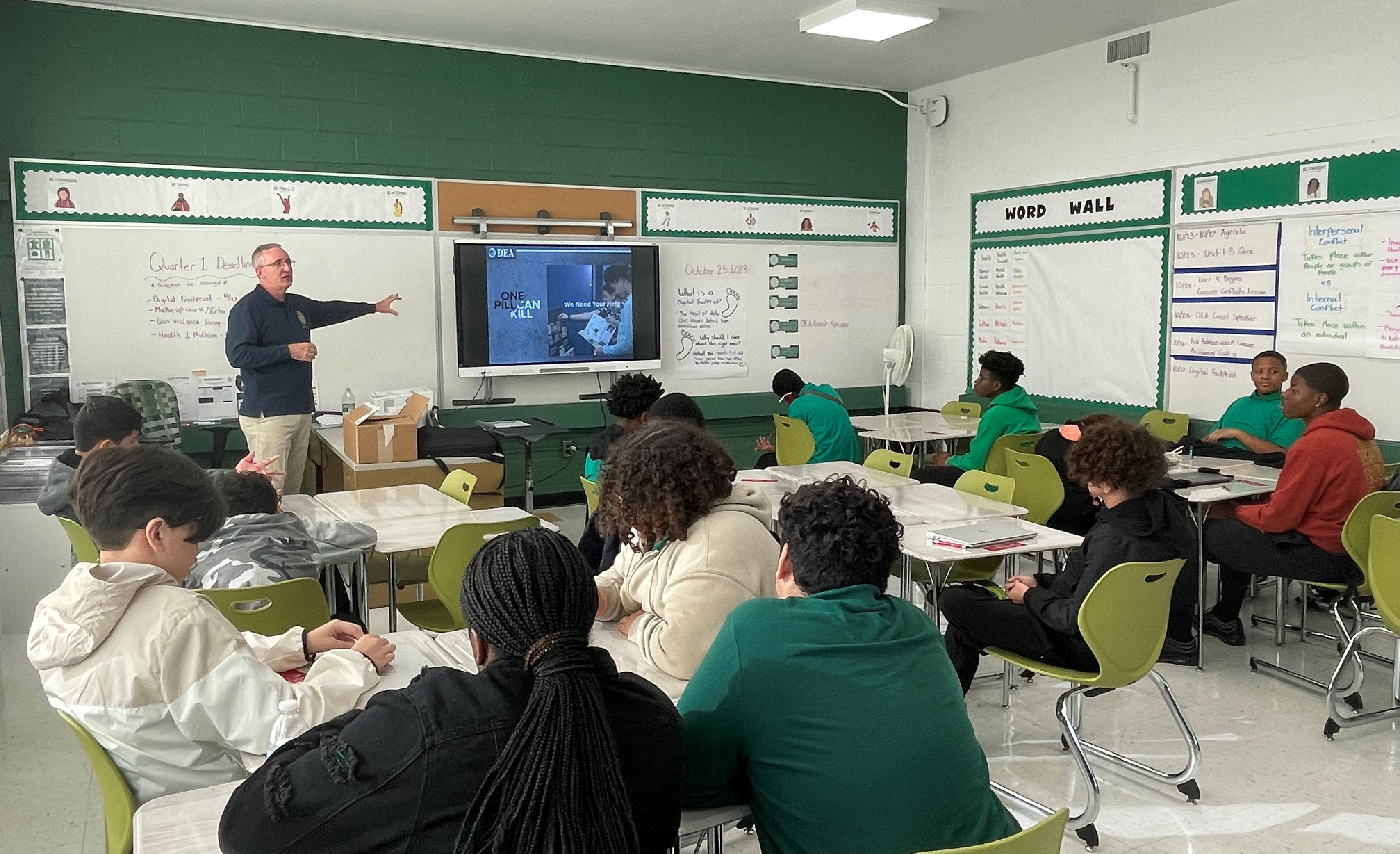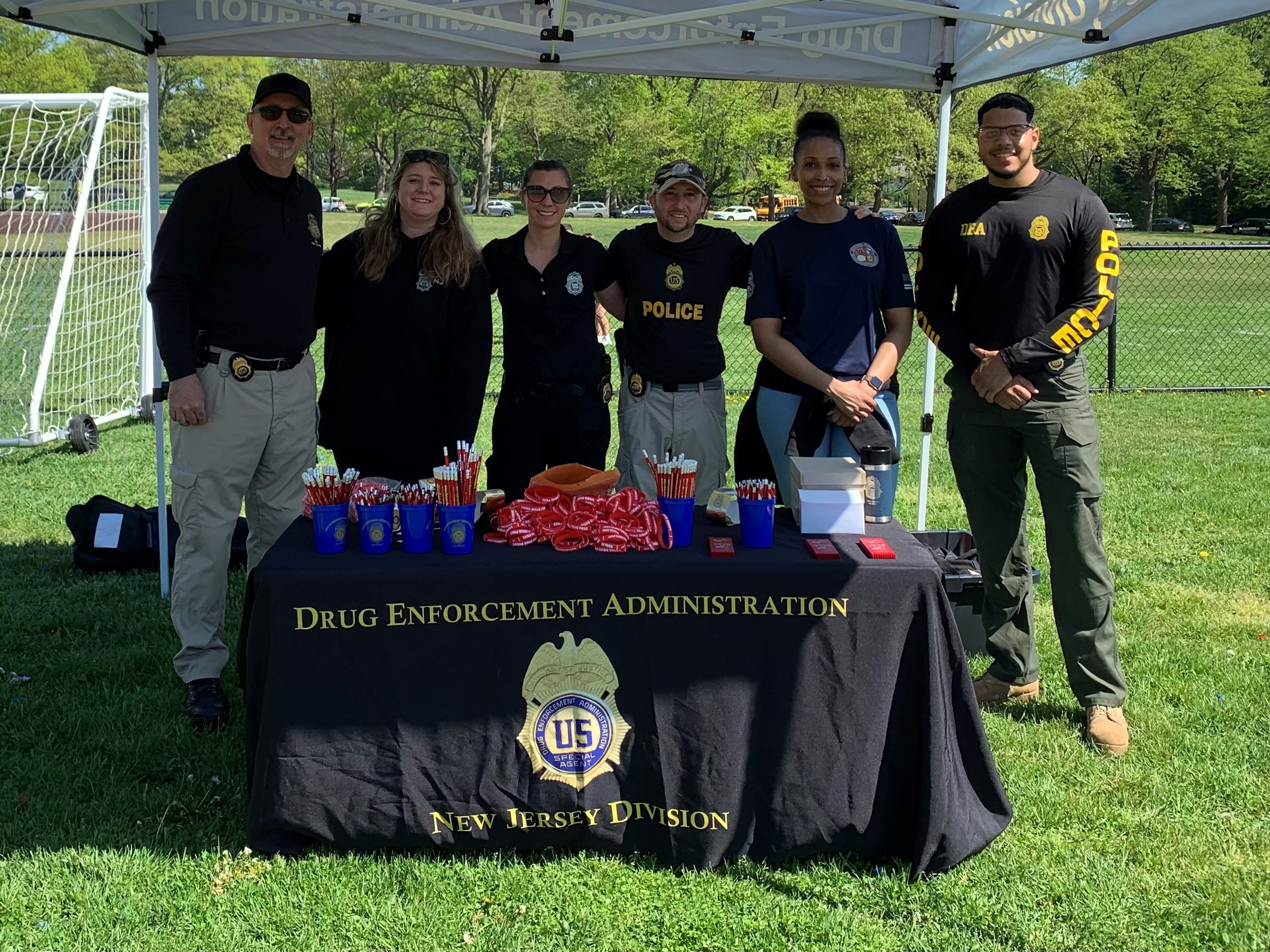Countering Illicit Drug Supply and Demand as a Special Agent
This is the 14th installment in a series of profiles featuring DEA special agents, diversion investigators, chemists, and more. Learn about the tough but fulfilling, fascinating, and vital work these DEA personnel do, as well as the many different ways to get involved in fighting drug misuse. For our 14th profile, we will be interviewing Special Agent Tim.

What motivated you to join DEA?
My father was a police officer and detective with the New York Police Department. Growing up, I had always considered a career in law enforcement, and my dad recommended going with the state police or a federal agency. It sounds cliché, but I wanted to do something where I could help people. During my senior year in college, I took the New York State Police exam. At that time (1988), DEA required at least three years of full-time work experience before being eligible to apply. I did well on the state police exam and was eventually hired as a trooper with the New York State Police. During my 4th year as a trooper, I applied to DEA, and after a two-year application process, I was offered a position in Basic Agent Class 128. The rest is history.
What does an average day for a special agent look like?
I have been very fortunate during my career as a special agent to have had several collateral duties that allowed me to experience different things. As an agent, every day is different. I’ve typically been in groups with 10 agents/task force officers, all of whom are working their own cases. One day may be catching up on reports or processing evidence. Another day may be spent in the car conducting surveillance, then getting called to cover a controlled buy, then executing arrest and search warrants. That is the great thing about the job; each day brings something new. I’ve also been fortunate to be a recruiter, demand reduction coordinator, and public information officer. Each one of those was different, but engaging with the public was rewarding, whether it was speaking to interested applicants, the media, or concerned parents.
What has been your proudest moment as a special agent thus far?
One of my collateral duties as a special agent was demand reduction coordinator. In that role, I created the Hidden in Plain Sight program for the New Jersey Field Division. With this program, I set up a mock teenage bedroom with numerous items to educate parents and caregivers on where teens might be hiding drugs or paraphernalia. This was one of the most successful outreach programs for the NJFD, and was featured on NBC New York news and Inside Edition. Following a couple of presentations, I received phone calls from parents who attended that advised that they knew their child was having issues but couldn’t pinpoint the cause. After attending the Hidden in Plain Sight program, they looked through their child’s room and found drugs they were using and were able to put them into a program to get help. Those were great phone calls to get and helped me to realize that I was making a difference. My time as a special agent recruiter was also very rewarding. I got to see those applicants whom I recruited get hired, and saw the great things they have done or saw that they’ve been promoted. That is very rewarding.

How can young people who wish to become a DEA special agent best prepare themselves for the job?
For anyone thinking about a career in law enforcement, specifically as a special agent, I would encourage them to do research on the position and the agency. Many colleges now require their students to participate in an internship program. This is a great way to get an inside look at what is required to be successful in the job. I can’t stress the importance of being in shape and properly preparing for DEA’s Physical Task Test. This is the one area of the entire application process for which the applicant is aware exactly what is required of them to pass. Even with that information readily available, there is still a high fail rate during the application process. Lastly, be aware of the mobility agreement. Know that there is a possibility of being required to move to a different part of the country upon getting hired.
The synthetic opioid fentanyl – often mixed into other drugs – is now responsible for tens of thousands of American deaths per year. How has the fentanyl epidemic changed your job?
It has been interesting since part of my responsibility has been as a demand reduction coordinator. In that role, I have seen the evolution of the opioid epidemic from the use and misuse of prescription painkillers to heroin use and now the influx of fentanyl. As agents, we know the drug cartels’ main goal is profit. Part of our role at DEA is to educate the public on the dangers of fentanyl. The deadly effects of fentanyl are like nothing we have seen before. That is why it has been so important to push the One Pill Can Kill message. So many people think it would never happen to them or their kids would never try anything like that, but the statistics show that just isn’t the case.
Aug. 1, 2023 Profile: Meet Special Agent Dave
Aug. 17, 2023 Profile: From Searching Tunnels to Undercover at a Rave...
Aug. 31, 2023 Profile: Fighting the Jalisco Cartel as an Intelligence Analyst
Sept. 14, 2023 Profile: Working With His Wife to Dismantle Drug-Peddling Prison Gang
Sept. 28, 2023 Profile: Meth Hidden in a Gas Tank? Helping DEA as a Chemist
Oct. 18, 2023 Profile: From Teaching English to Helping Capture El Chapo
Nov. 2, 2023 Profile: Phone Forensics: Diving Into Digital Evidence
Nov. 16, 2023 Profile: Inside the World of Chemistry, Calculations, and Clandestine Labs
Jan. 4, 2024 Profile: Training Female Law Enforcement Officers in Afghanistan and Saudi Arabia
Jan. 18, 2024 Profile: Getting the 'Friday Scaries' as a Strategic Analyst
Feb. 8, 2024 Profile: Marijuana Scheduling Is a Hot Topic. Hear From a DEA Pharmacologist Who Collects Data to Schedule Drugs
Mar. 11, 2024 Profile: Classrooms to Conferences: Connecting the Community to Fight Drug Misuse
May 9, 2024 Profile: Tackling Cyber Crime With DEA's Special Ops

